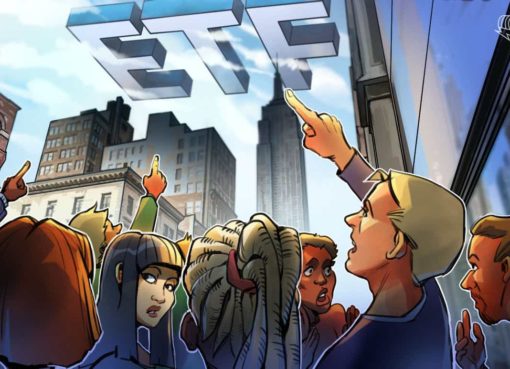The new blockchain-based IP ownership network Story Protocol closed a $54 million funding round on Sept. 7, which included investments from big names like Paris Hilton’s 11:11 Media, and Andreessen Horowitz, also known as a16z.
The platform uses blockchain technology to help content creators oversee and monetize their content in the face of fakes generated by artificial intelligence (AI). It plans to serve as a blockchain-based IP ownership repository for all types of content including text, image and audio.
If artists eventually register with the protocol they can use connected services to sell the licensing rights for various other uses.
The other co-founder of the project Seung-Yoon Lee estimated that in “in a year or two the level of remixed content through GenAI is going to be so much higher.”
“In a world of total abundance catalyzed by generative AI, blockchain technology presents the perfect solution for transparent provenance tracking and fair attribution.”
The round was led by Andreessen Horowitz, who also received equity in the company and the right to buy digital tokens if issued by Story Protocol, according to a spokesperson from the company.
Story Protocol also received backing from Hashed, Endeavor, David Bonderman – the founder of TPG Capital- and Samsung Next.
The company’s co-founder Jashon Zhao said the funds will go towards the launch in the first half of 2024.
Related: YouTube releases ‘principles’ for working with music industry on AI tech
The battle against deep fakes and copyright-infringing content at the hands of generative AI has been of major concern for the entertainment industry.
Universal Music Group (UMG) has been campaigning for streaming platforms such as Spotify to be vigilant about removing content that misuses copyrighted work.
Shortly after UMG’s email was dispersed, Spotify announced it would be increasing its policing across the platform and actively began to remove content in violation of copyright rules.
Most recently, it was revealed that UMG and Google were in negotiations over how to manage deep fakes, along with how to best license melodies and vocal tracks that can be used in AI-generated songs.
Magazine: BitCulture: Fine art on Solana, AI music, podcast + book reviews




